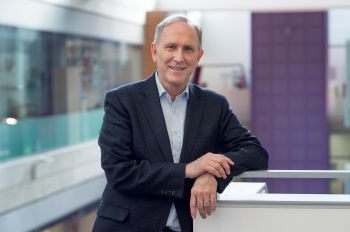Now’s not the time for “my country first” thinking if we’re to get on with our global problems
By: James Hakner
Last updated: Wednesday, 13 December 2017

Professor Joseph Alcamo, Director of the Sussex Sustainability Research Programme
By Professor Joseph Alcamo
The political winds around the world are blowing stronger and stronger towards a “my country first” attitude of protectionism, isolationism and nationalism.
As that thinking becomes increasingly prevalent, the likelihood of truly global problems being solved recedes further and further.
It’s not that it’s wrong to take care of our immediate loved ones and communities as a priority, or show loyalty to our country.
But continually ignoring “global” problems outside of our immediate vicinity will not stop those bigger problems from starting to bite closer to home eventually, and sooner than most might think.
Solving global problems calls for actions that involve, but also transcend, community and country; it requires partnerships and policies that cross borders.
The irony is that the same countries now slipping towards “My country first” stances were among the 193 nations that agreed just two years ago to an unparalleled set of global targets – the 17 “Sustainable Development Goals [SDGs]”.
The world has never seen a set of international targets with such breadth and ambition, covering world hunger, poverty, educational needs, environment, energy, and much more.
It’s all there, and if achieved we’ll all be better off by 2030, with a higher level of well-being and a more sustainable planet.
But what are the chances of achieving those very desirable goals if we don’t think globally?
Today (16 October) on World Food Day is the opportune time to be thinking in particular about the second SDG that aims to “end hunger, achieve food security and improved nutrition and promote sustainable agriculture” by 2030.
Achieving just this SDG alone will take a high level of cooperation, especially when the number of undernourished people has actually increased since 2014, reaching around 815 million people in 2016, according to the UN’s Food and Agriculture Organization.
On one hand, we know that reaching food security means dealing with a challenging list of political, social and economic factors.
But food security also relies on a strong ecological foundation as the UN report called Avoiding Future Famines made clear.
The real eye-catching part of the report was the claim that this foundation is precarious.
While agriculture delivers 90% of the world’s caloric consumption, nearly 1 in 5 hectares of the cropland producing these calories is degrading, largely because of inappropriate, environmentally-damaging agricultural practices.
Its ecological foundation is further undermined by climate change, by competition for land between food and biofuel producers, by competition for water between irrigation and drinking water suppliers, by the destruction of pollinators through deforestation and overuse of pesticides, among other factors.
The other 10% of our calories come from fish, which are important because they make an over-proportional contribution (16%) to world consumption of animal protein.
The ecological foundation of fish production is also under considerable threat with more than half of all marine fisheries being overfished, and at least a third of the world’s mangrove forests, a key fish habitat, having been destroyed by shoreline developments.
That’s the bad news.
The good news is that we can shore up the ecological basis of food production if we achieve other SDG goals – Goal 13 aims to slow climate change and its impacts, Goal 14 protects marine ecosystems, and Goal 15 restores degraded land.
The fate of the food security goal depends on hitting these and other goals and that is the lesson here – The SDGs are intertwined and we need a common, global approach to ensure they are all met at the same time. Failing with one goal will lead to failure of the others.
That is why at the Sussex Sustainability Research Programme, launched last year by the University of Sussex and the Institute of Development Studies, we are researching the complex social, economic and environmental challenges posed by solving two or more SDGs.
Now, not all action on SDGs needs to be global. We can also do a lot close to home.
For example, we can help by reducing household food waste which, adding up all households, accounts for about one-third of all food production in rich countries. Less food waste means lower demands for food production, and less pressure on its ecological foundation.
But there are limits to local action, because many, if not most, factors affecting food security are bigger than our locale or country.
So every individual can remind their political leaders that they have committed us all to the Sustainable Development Goals, and that all of these targets are interconnected.
We can all tell them that thinking local is important, but not enough, that for food security we also need fair international food trade, sustainable fisheries in the oceans, land-conserving agricultural practices, and policies that slow the impacts of climate change on food production – all things that transcend borders.
We can tell them it is an inescapable conclusion that more international cooperation, not less, will be needed to achieve food security, environmental quality, and the other SDGs.
And we should tell them that “My country first” might sound good, but it’s not going to help us face up to the challenge of food security and other of the world’s biggest problems.
Professor Joseph Alcamo is the Director of the Sussex Sustainability Research Programme and former Chief Scientist of the United Nations Environment Programme.
